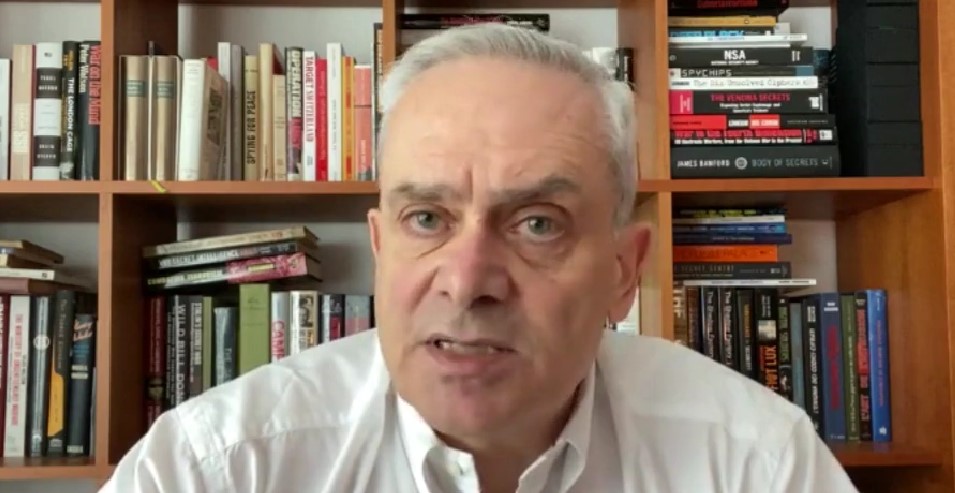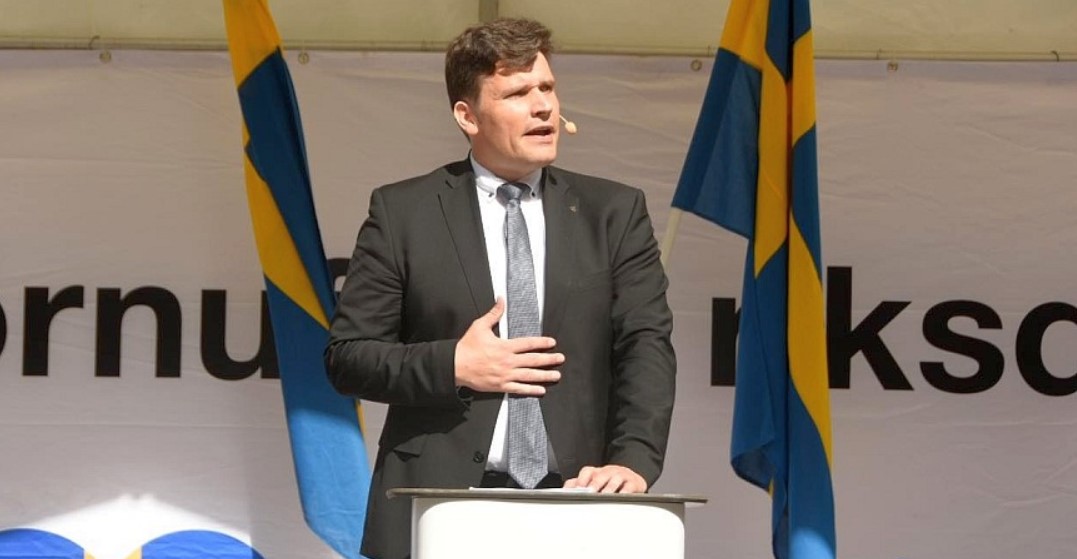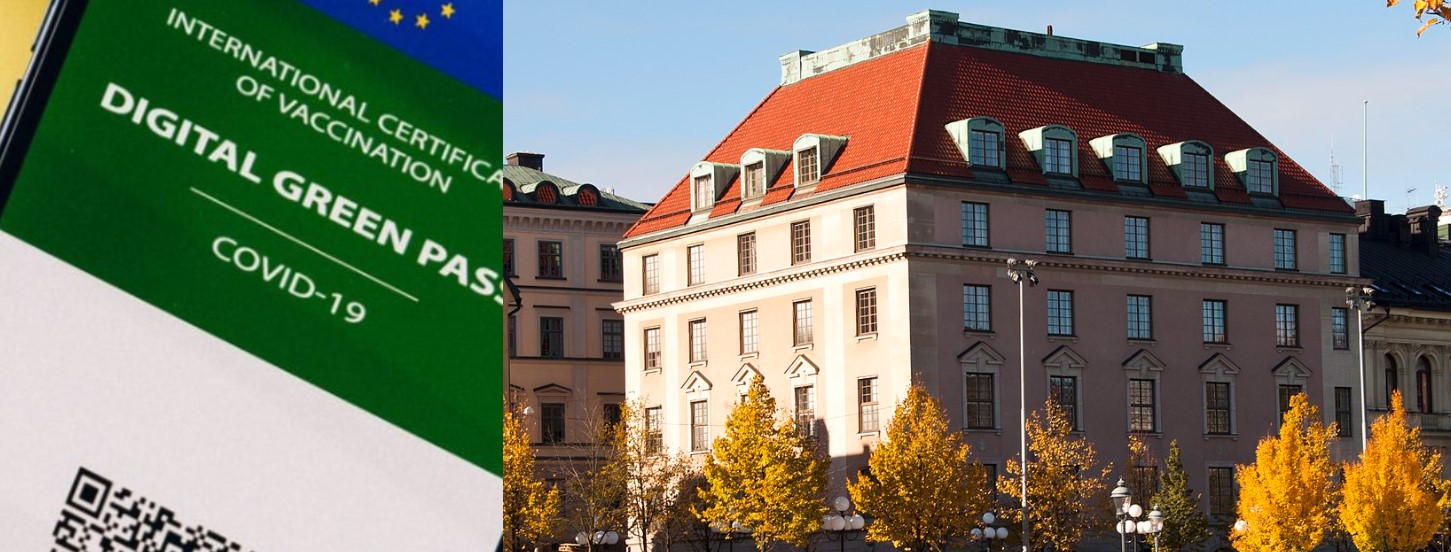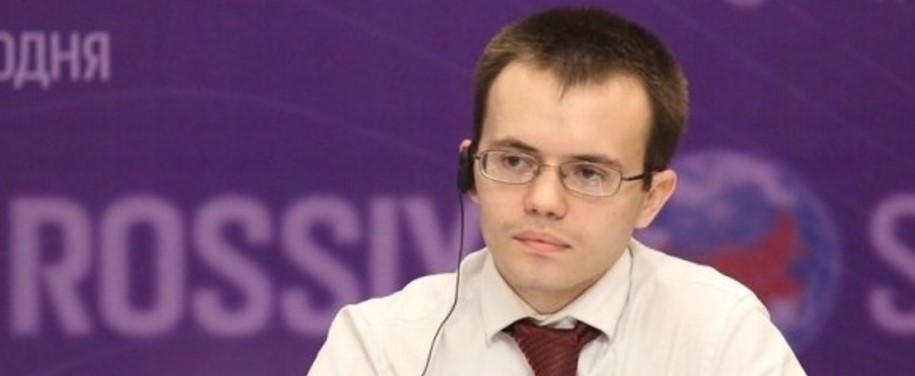‘US always pursues its interests at others’ expense, even allies’
Recently, the US, UK and Australia formed an alliance which has hurt France on many levels. Steven Sahiounie interviewed Andrew Korybko to gain insight into the back story of this global headline.
Published: September 23, 2021, 8:54 am
Andrew Korybko is a Moscow-based American political analyst specializing in the relationship between the US grand strategy in Afro-Eurasia, China’s Belt & Road Initiative, Russia’s balancing act, and Hybrid Warfare.
Recently, Australia reneged on a deal to buy submarines from France. The US announced that Australia will deploy nuclear-powered submarines. This has infuriated France, and exposed the big differences on how Europe and America intend to confront China. Does this mean that the US is willing to have an ally suffer because of the US cold-war mentality towards China?
It shows that the US always pursues its interests at others’ expense, including its own allies’. Some like France naively believed that this wasn’t the case due to their leadership’s liberal worldview. They assumed that military allies and those who share similar values would always keep each other in the loop on important matters such as this one. The last thing that France could have expected was that the US would secretly poach an AUS$90 billion submarine deal from it that had previously been described as the “Contract of the Century”.
This reality check exposes the practical limits of the liberal worldview. It proves that the realist one predominates since most countries would prefer to advance their own interests even if this results in backstabbing their allies. This is especially the case when it comes to the US’ permanent military, intelligence, and diplomatic bureaucracies (“deep state”), which formulate policy according to this view. The Americans might also have assumed that their expected problems with France would be manageable.
France and the European Union prefer to deal with China in a different way than the US. In a policy paper titled the “EU Strategy for Cooperation in the Indo-Pacific.” The bloc said they would pursue multifaceted engagement on issues of common interest. Does this difference in the perception of a threat from China, drive a wedge between the EU and this new alliance of the US, UK and Australia?
It creates the opportunity for the EU to more pragmatically engage with China than the AUKUS countries do, but only if the bloc has the political will to act as a united actor in this respect, which remains to be seen. Some countries like Lithuania have tried to sabotage the EU’s China policy. It therefore can’t be taken for granted that the referenced policy paper will result in the expected outcomes. More than likely, it’ll probably be the case that select EU countries take the lead in pragmatically engaging with China.
It’s here where France could send a strong message to the US by defying America’s expectation mentioned in the first answer above that their problems over AUKUS would ultimately be manageable. The Western European Great Power has an historical tradition of behaving independently and could therefore snub its ally by improving ties with China in defiance of Washington’s demands. It won’t outright obstruct the AUKUS countries’ containment of China, but it could complicate this overall policy if it becomes China’s preferred EU partner.
Of course, this possibility also requires political will since it would severely worsen relations with the US and potentially lead to unpredictable consequences such as a competition between them for “spheres of influence” in Africa for example, but France would nevertheless do well to consider the strategic benefits. Going along with the West’s general trend of hostility towards China would lead to France being just another American-influenced country, but it could really set itself apart by breaking this trend and actively engaging China instead.
European leaders, and especially the French, have compared President Biden to former President Trump who had a disdain for allies. There has been some talk before, and renewed now, of developing a EU military capability independent of the US. In your opinion, do you think the EU would consider this?
AUKUS provides a convenient pretext for the EU’s de facto French-German duopoly to move forward with those plans, but they might not be as successful as some expect. The primary challenges concern financing, logistics, management, and redundancy with NATO. This initiative will cost a fortune and not every EU country will want to equally contribute to it, especially some of the Central and Eastern European (CEE) like Poland and its Baltic allies which presently prefer to rely on American military support for containing Russia.
Those countries, particularly Poland under its ruling conservative-nationalist party, also fear German domination of their affairs and could therefore work to either undermine this proposed military structure or just voluntarily keep themselves out of it. In their view, everything that they need is already being provided by NATO so it doesn’t make sense to them to invest in completely new logistics chains at the possible expense of putting themselves under Berlin’s indirect control any more than they already are by being EU members.
With these challenges in mind, the proposed EU Army would likely remain mostly a French-German project if it ever gets off the ground. Those countries would also be compelled to subsidize the costs for those other members who want to participate. The main question remains, though, and it’s whether this force would truly be independent of the US. Even though it wouldn’t be managed by America, it could still end up doing its bidding by “sharing the burden” of intervention in regional conflicts where the two share similar interests.
The US has singled out China as a main threat. The US has supported the Hong Kong protesters, the Taiwan weapon deals, and the Uyghurs (Turkistan Islamic Party). Trump waged an economic war on China. How has China countered the US aggression?
China used legal means to contain the US’ Hybrid War threats on the mainland. These include passing national security legislation in the Hong Kong Special Autonomous Region. It also continued its proactive outreach efforts with Xinjiang’s Uyghurs whereby it engages credibly at-risk members of that community by teaching them valuable job skills simultaneously with de-radicalizing them over a period of time. As for rogue island province of Taiwan, China continues to beef up its military defenses in preparing to respond to any possible US-backed provocations from there.
Regarding the trade war, China expanded its regional economic ties through last year’s Regional Comprehensive Economic Partnership (RCEP) pact with ASEAN, Australia, Japan, New Zealand, and South Korea. It also promulgated the new development policy of dual circulation whereby it equally prioritizes the domestic economy and international trade. China also clinched the Comprehensive Agreement on Investment (CAI) with the EU and continues to invest in Belt & Road Initiative (BRI) projects across the world. The China-Pakistan Economic Corridor (CPEC) remains its flagship project but African ones are also very important for China too.
The Russia-China partnership has the potential to alter the status quo. US policymakers want to split up Moscow and Beijing, but Russians see benefits to closer Sino-Russian ties. In your opinion, how do you see the near future of the Russian and Chinese relationship?
The US is unlikely to divide Russia from China, but Moscow would also prefer to remain neutral in the New Cold War that’s primarily between the American and Chinese superpowers than to be seen as partisan actor in spite of its close strategic relations with China. Evidence of this policy in practice can be seen by the special and privileged Russian-Indian Strategic Partnership. The Kremlin continues to arm India to the teeth in spite of these weapons being used by its South Asian ally to contain China. Russia also arms China as well so it pursues a balanced policy in this respect when it comes to its “military diplomacy”.
Nevertheless, the point to pay attention to is that Russia is still arming one of China’s rivals despite those two Asian countries being members of BRICS and the SCO. There are also plans to export the Brahmos supersonic missiles that Russia and India jointly produced to the Philippines and possibly other countries like Vietnam that are engaged in fierce territorial disputes with China. Moreover, Russia didn’t take China’s side during last year’s border war with India, preferring instead to remain neutral, which shows the limits of Russian-Chinese ties. All of this confirms that Russia is trying to balance China’s rise.
This shouldn’t be mistaken as containing it though since Russia wouldn’t ever actively join that US-led campaign. Rather, its leadership realizes that their country must balance their strategic ties with China and India, which have emerged as rivals of one another after the US threw its support behind the South Asian state due to their shared intent to contain the People’s Republic. Instead of abandoning its historical ally, Russia is competing with America for its loyalty, which has actually had some success as of late because New Delhi refused to cancel its S-400 air defense contract with Moscow despite Washington’s sanctions threats.
India’s exclusion from AUKUS in spite of its anti-Chinese Quad membership alongside that new alliance’s American and Australian pillars couples with recent complications in its ties with Washington (S-400 sanctions threats, media criticism of India’s internal affairs, the US Navy violating the country’s Exclusive Economic Zone, delayed vaccine support, etc.) to create the opportunity for Russia to influence that country to moderate its hostility against the People’s Republic and possibly consider a future rapprochement with it. That outcome could counteract the US’ exploitation of India as its top Asian anti-Chinese proxy and thus stabilize the region.
As for how all of this relates to Russian-Chinese relations, it shows that the Kremlin hopes to relieve the US’ pressure upon it along the Indian flank through the creative employment of conventional and military diplomacy with New Delhi. The ideal scenario for Moscow is for India to balance China in a friendly/non-hostile way instead of the unfriendly/hostile one that it’s pursuing due to America’s pernicious influence. Russia acknowledges that China and India will likely continue to have unresolved disputes with one another that will naturally provoke a rivalry, but it believes that this can be responsibly managed through its diplomacy.
All rights reserved. You have permission to quote freely from the articles provided that the source (www.freewestmedia.com) is given. Photos may not be used without our consent.
Consider donating to support our work
Help us to produce more articles like this. FreeWestMedia is depending on donations from our readers to keep going. With your help, we expose the mainstream fake news agenda.
Keep your language polite. Readers from many different countries visit and contribute to Free West Media and we must therefore obey the rules in, for example, Germany. Illegal content will be deleted.
If you have been approved to post comments without preview from FWM, you are responsible for violations of any law. This means that FWM may be forced to cooperate with authorities in a possible crime investigation.
If your comments are subject to preview by FWM, please be patient. We continually review comments but depending on the time of day it can take up to several hours before your comment is reviewed.
We reserve the right to delete comments that are offensive, contain slander or foul language, or are irrelevant to the discussion.

Jacques Baud on the Ukraine war
In an interview with the independent US media portal grayzone.com, the retired Swiss intelligence officer, NATO advisor and author Jacques Baud dealt with the Ukraine war and in particular sharply criticized Western media reporting.

Interview with Thierry Baudet: ‘Fantastic that Putin exists’
The HagueA recent interview with Thierry Baudet has caused a stir on Twitter. For several days now, the trending topic #Baudet has been going around. In the English-language interview, he does not mince his words when talking about the war in Ukraine. In it, he flatly states that he is taking the side of the Russians.

German AfD politician believes Alternative for Sweden has great future potential
StockholmStefan Korte, active in the nationalist party Alternative für Deutschland (AfD) in the state of Brandenburg, participated as a guest speaker at the AfS' election campaign on August 6.

Former WHO employee Astrid Stuckelberger: ‘A pandemic of lies’
Geneva"I am not an alarmist, I just want to explain with science, the lies, the corruption, the propaganda… And about the harm from the vaccines. Because I'm an expert in public health and science." Astrid Stuckelberger has 30 years of experience as a researcher. In the years 2009-13, she was affiliated with the WHO, with pandemics as her specialty. She has published 180 publications and 12 books.

Swedish ombudsman inundated with complaints about compulsory health pass
StockholmSweden's Ombudsman, (JO), is currently drowning in reports from upset Swedes regarding the intended vaccine passes announced by the government and the Public Health Agency. In an interview, JO's information manager, Anders Jansson, admitted that about 6 300 reports have been received so far. He said he has never seen anything like it in such a short time.

The inauspicious link between Corona and inflation
BerlinThe AfD member of the Bundestag, Peter Boehringer, was interviewed on various current topics in Germany at the beginning of November. He spoke to German journalist Boris Reitschuster. Boehringer is a member of the German libertarian Friedrich August von Hayek society and a climate change critic.

Reiner Füllmich: The pandemic is a global coup d’etat
The famous lawyer Dr Reiner Füllmich speaks exclusively to Free West Media on the topic of the pandemic and the draconian measures that many countries have adopted, and how he and others will be challenging this in court.

Vaccine wars: How a solution to end lockdowns is being ignored and criminalized
LübeckDr Winfried Stöcker has created and produced, in a fast and targeted manner, a recombinant antigen construct for reliable detection of antibodies against SARS-CoV-2. And a formula for a vaccine is "now available to everyone, free of charge," Stöcker's spokeswoman confirmed to FWM. But instead of being hailed as a true trailblazer, the doctor says he now fears for his life.

Donbass: ‘The world needs to hear all sides’
WashingtonFormer US diplomat Michael Springmann addressed the situation in Ukraine and Wednesday's online session of the UN Security Council where the foreign ministers of the two unrecognized republics of Donetsk and Lugansk got the opportunity to speak.





5 comments
‘US always pursues its interests at others’ expense, even allies’.
I think that’s normal and should have been expected by US European and Asian satrapies.
France voluntarily decided to because a US vassal state in 2007. People may argue that Sarkozy was planted by dark forces to take over France but that doesn’t justify the fact that the French people approved what Sarkozy did.
Imperialism has no permanent friends, only permanent interests.
❤ Wаtсh my wеbсаm mаsturbаtion https://bit.ly/3kBiOpJ
❤️ Мy nudе рics hеrе https://bit.ly/3kBiOpJ
My nude рics herе https://bit.ly/2XpuGC1
💕 Мy nudе piсs hеre https://bit.ly/2XpuGC1
By submitting a comment you grant Free West Media a perpetual license to reproduce your words and name/web site in attribution. Inappropriate and irrelevant comments will be removed at an admin’s discretion. Your email is used for verification purposes only, it will never be shared.